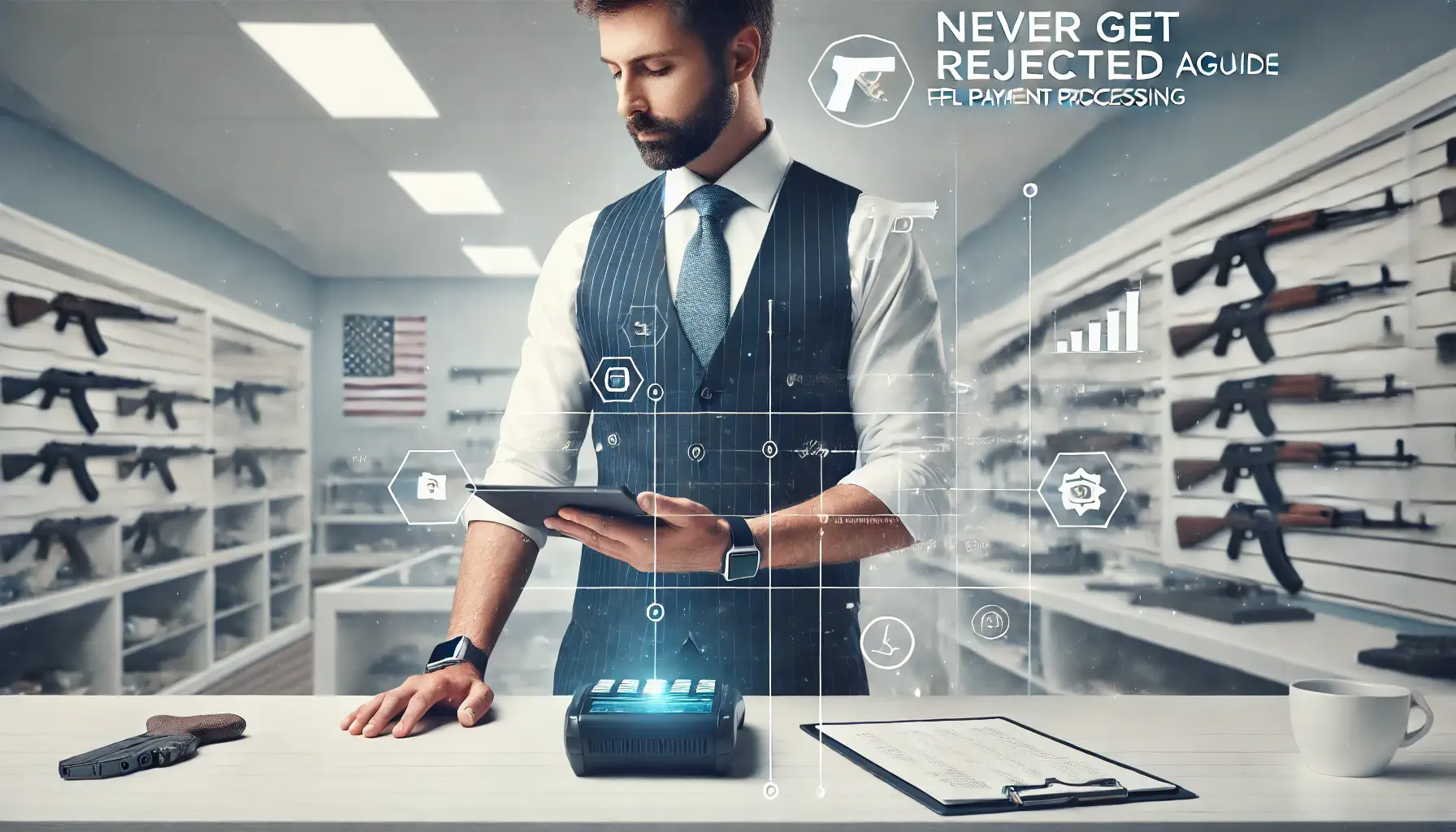Welcome to BKW Servicing
Welcome to BKW Servicing

Tired of getting rejected when it comes to FFL payment processing? If it seems as though gun dealers get rejected more than other types of merchants, that’s because they do. Firearms merchants are considered a “high risk” for fraud and chargebacks. Because of this, many banks and payment processors reject applications from gun retailers, and even when they do accept their application, they often charge exorbitant processing fees.
Fortunately, there are ways to set yourself up for success. Learn all about FFL payment processing and how to optimize your chances in today’s blog.
To start, any firearms dealer first needs to be a Federal Firearms Licensee (FFL). The sale of firearms is a serious matter, and the Bureau of Alcohol, Tobacco, Firearms, and Explosives (ATF) has strict guidelines for FFL. It’s important for FFL gun retailers to be responsible in their sale of firearms and to educate their customers. Licenses can be revoked for failing to conduct a National Instant Criminal Background Check System (NICS) background check, for selling a firearm to a prohibited person, or failing to obtain and complete the correct forms from the ATF.
Because of the strict regulations surrounding FFL, gun retailers are considered high risk merchants. This high risk status makes them more likely to be rejected, especially by payment processors who don’t have the right experience with high risk merchants. It can also lead to high processing fees that make it difficult for gun retailers to make a profit.
Of course, there are payment processors out there who specifically take on high-risk merchants. Finding a good FFL payment processor who understands the unique challenges of your industry can be a boon in helping you process payments and run your business smoothly. Unfortunately, there are also a number of scam FFL payment processors: companies who claim to work with high risk merchants but are really just a trap to take your money or your customer information. Knowing how to tell the good from the bad is key to your success.
Some green flags when it comes to finding an ideal FFL payment processor include:
A few of the major players when it comes to trusted, high quality FFL payment processors include BKW Servicing, eMerchantBroker, Zen Payments, and Electronic Merchant Systems (EMS).
Red flags that may hint at a payment processing scam include:
In general, it’s always a good idea to compare merchant service accounts before making a decision to avoid getting saddled with a scam and possibly losing money or valuable consumer trust.
Even if you’re accepted by an FFL payment processor, you may also find yourself stuck with high processing fees for every purchase. Understanding pricing structures and contract terms for FFL payment processors can help to mitigate this risk. Payment processors offer a variety of credit card pricing structures, including:
One issue with interchange plus pricing, however, is the risk of hidden fees tacked onto the end of the transactions. These should all be examined closely and, if there’s no explanation, you should always contact your payment processor for more information. The more transparency, the better. Some interchange fees will be non-negotiable as they are representative of the base cost. However, when it comes to markups added to the base cost, you should always push to know the reason for these costs.
The pricing structure will be laid out in the contract terms provided by the FFL processor. Knowing what each pricing structure means for your business makes it easier to negotiate a fair contract. The length of the contract may vary, but the industry standard is 3 years.
In order to maintain your Federal Firearms License, you must be compliant with local, state, and federal laws. When you have an eCommerce shop, this can become complicated since different regions and states will have different laws when it comes to firearm regulations. For instance, California now requires a specific merchant code for the purchase of firearms, while states such as Texas, Florida, and Montana have currently banned this merchant code. Because regulations are so often in flux currently, staying on top of any changes is essential.
You also have to ensure that you provide accurate customer education about firearm purchases and safety, as well as consumer data privacy rights. And as stated previously with regards to Federal Firearms Licensing, it’s important to always perform background checks on customers and not sell firearms to a prohibited person, to ensure you keep your license.
Working with a FFL payment processor who stays up-to-date on all regulatory compliance issues can be a boon when it comes to staying out of any legal trouble for your gun dealership.
BKW Servicing is your trusted FFL payment processing solution. We understand how frustrating it can be to get rejected over and over due to being a “high risk” merchant. We work with over 20 banks and payment processors to curate the best payment processing plan for your gun dealership. Contact BKW Servicing today to learn more about how we can help you and start earning with your gun retailer.